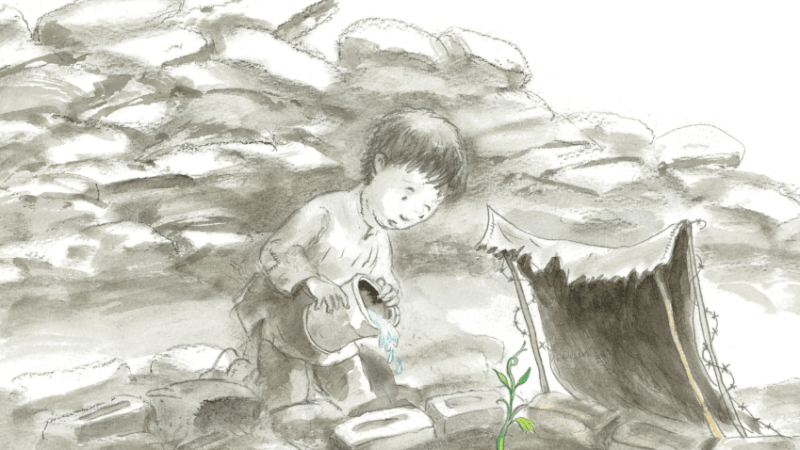Build a better English curriculum by looking outside of lessons

Make language a key player in all aspects of school life, encourages Ruth Baker-Leask…

English takes up more timetable space than any of the other primary subjects, yet we still struggle to teach it all. This being the case, why are so many children still struggling to read, write and talk at a level that is expected for their age?
To answer this question I would like to start by highlighting one of the key aims of our current English curriculum.
It states in the opening paragraphs that ‘the overarching aim for English in the national curriculum is to promote high standards of language and literacy by equipping pupils with a strong command of the spoken and written word.’
Bearing this in mind, I think that in an effort to ‘cram it all in’ there is little time given to help children embed the language skills we are teaching so that they may use them independently, effectively and with confidence.
I would also suggest that in an effort to record what the children have learnt, we spend more time on the written word than the spoken, when we know children will struggle to write something that they can’t say.
So how can we change this situation when we are all suffering from overcrowded timetables and regular work scrutiny and when English is predominantly taught in hour-long blocks and is then tucked away again until next time?
Well, I suggest that English should be untethered and encouraged to roam around the school, occupying all of those places and spaces where creative language skills are needed.
The following suggestions are not new ideas, but, in many settings, they have been overlooked due to the busy nature of school life or are considered a luxury when there are so many other things to think about.
In the spotlight
Drama supports children in speaking audibly and fluently as well as providing opportunities for participating in performances, both of which are statutory requirements in the spoken word section of the curriculum.
It’s also pretty good for increasing children’s self-esteem, especially when they hear the applause of an appreciative audience. Here are some ideas to try:
- Start a drama club
These are ideal for those children who have a natural aptitude for acting but who may never get the opportunity to discover their talent.
Does your school have an end-of-year production? Do you stage a nativity play or celebrate other cultural or religious events with a performance? Time-consuming though they are, the benefits are many, including supporting children’s understanding of narrative or important events by experiencing them first-hand.
Many schools have ditched class assemblies due to the time constraints of the curriculum. However, with some careful planning, the English curriculum can be taught in the context of a class assembly. Activities such as scripting or directing performances will support children in widening their vocabulary, strengthening their composition skills and understanding the impact language and gesture have on an audience.
Healthy debate
Debating is a great way of developing children’s language skills. Teaching the language of discussion and argument is difficult unless we give children authentic opportunities to talk about, debate and persuade people about the issues that matter to them.
A debating society, children’s parliament or school council can all provide pupils with this opportunity.
Too often school council meetings are rushed or over-managed by adults who are more interested in what playground games the children want to play or the colour of the new school badge than talking about real issues that affect their children’s lives. In this age of renewed youth activism, I would love to see school councils that represent the authentic voices of their pupils and aim to make meaningful changes to the school, community and wider world. A good place to look for ideas is esu.org
A place for poetry
There are only a handful of requirements for children to learn about poetry in the national curriculum, and it’s only a statutory requirement that children write poems in Y2.
I often advise teachers to weave poetry into their English teaching whenever possible as it’s the perfect vehicle to encourage children’s love of language and appreciation of well-crafted writing.
For students who have caught the poetry bug and who might enjoy writing their own verses, organise a poetry club at lunchtime or after school that gives children time to apply their language skills to expressing their inner thoughts and feelings.
Sniff out stories
We regularly ask children to write newspaper-style reports in English lessons, often unsuccessfully. This may be because many children don’t read newspapers and are unsure of their style and purpose.
If pupils had the opportunity to read and take part in writing a school newspaper, I think this could help. This was once a standard part of school life but seems to have dwindled.
This is such a shame, especially when you consider how much more simple it is to publish children’s writing in this age of electronic media.
Could your school start an e-newsletter devised, written and published by your pupils? Are there children in your school who would jump at the chance of becoming newshounds, editors or agony aunts?
To spread the workload, could each class take it in turns to write the school’s newsletter periodically?
Love your library
So many libraries go unused during most of the school day, despite a further aim of the national curriculum being to develop our children’s ‘love of literature through widespread reading for enjoyment.’
One of my fondest memories of primary school was when I was chosen to be a school librarian. I would spend most lunch hours avoiding the chaos of a busy playground by stamping, tidying, sorting and reading books.
Not everyone’s idea of fun, you may be thinking, but I am sure there are many children out there who would relish such an opportunity, so find them!
These are your reading ambassadors: the children who can keep your library tidy and well used; who will run book groups for others by reading stories and recommending books; who will be your greatest allies in the endeavour to get all children reading widely and often.
Admin apprentices
It always raises a smile when I hear a school’s phone message has been recorded by one of the kids, or I am given a tour of a school by an articulate pupil who is relishing the opportunity to skip a lesson to show off the finer features of their school.
So many simple day-to-day tasks are undertaken by adults that are perfect opportunities for children to practise their language and literacy skills.
Pupil-led activities could include writing labels for displays, or even writing letters to parents about class trips. This gives children’s writing a real purpose and audience, as well as saving valuable admin time for teachers and office staff.
Making it purposeful
Many of the experiences suggested above are the ones I recall from my own education. I don’t remember much of the content of my primary lessons, but I do remember the play I wrote as part of my leavers’ assembly or the book review that was published in the school newsletter.
By providing wider opportunities for children to apply their language skills in purposeful and inviting ways, schools will be in a better position to equip pupils with a strong command of the spoken and written word.
Ruth Baker-Leask is a consultant, speaker, teacher and chair of the National Association of Advisers in English.












